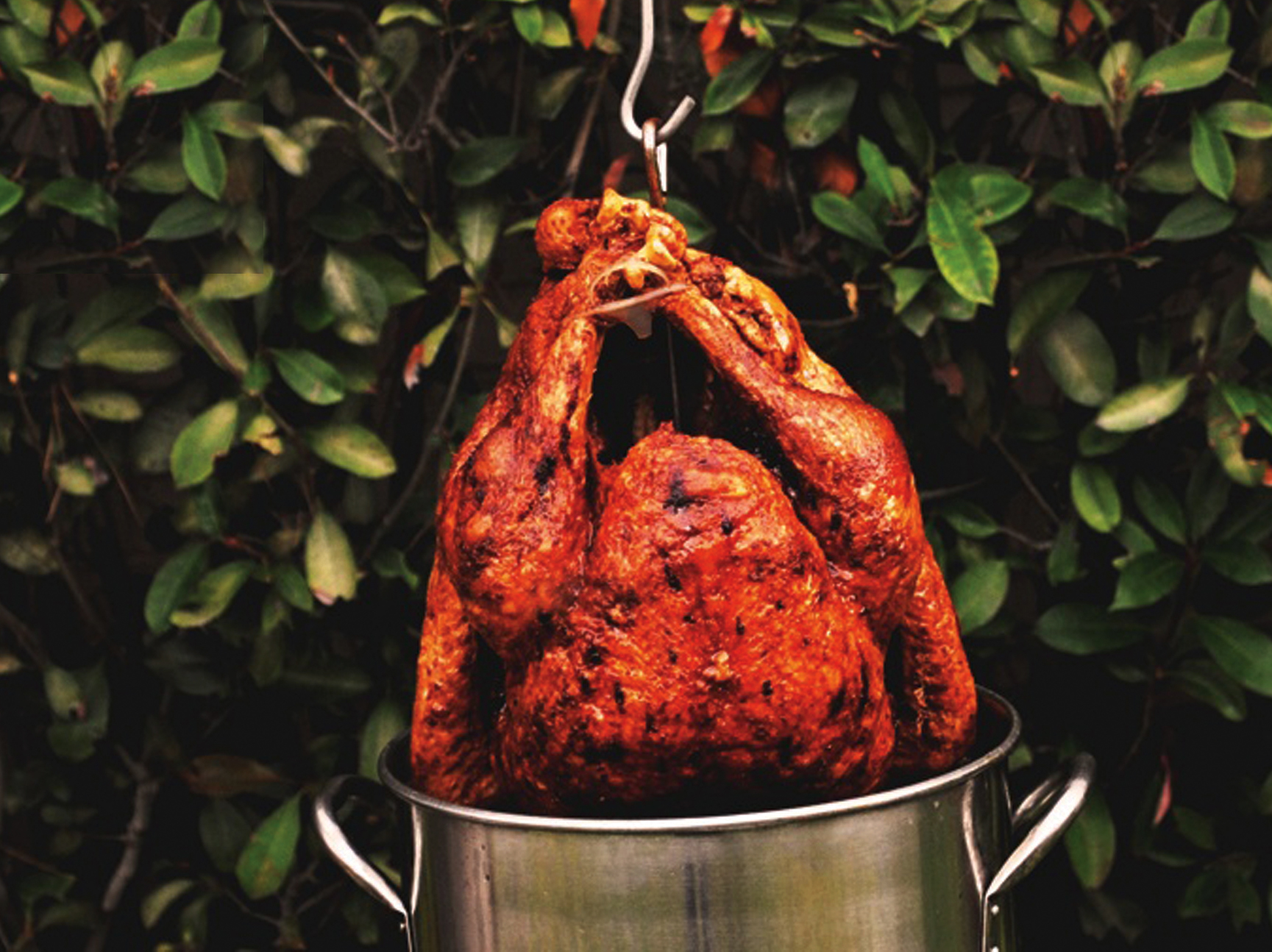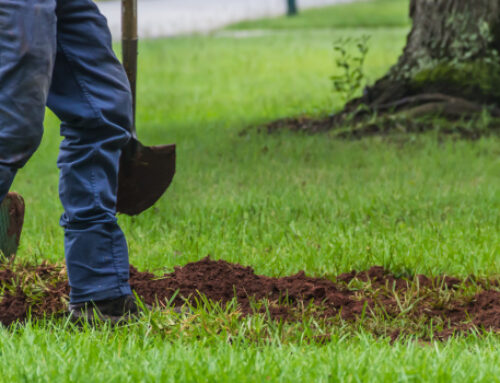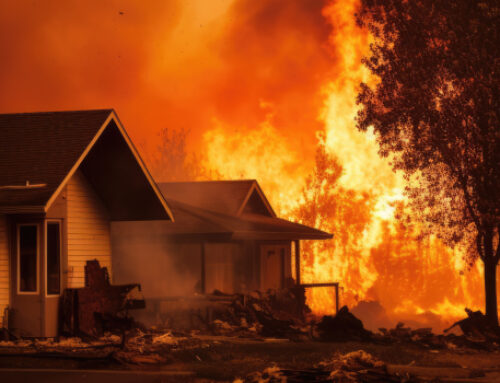A time filled with gratitude, food, and – disaster? The Thanksgiving holiday, with all its warm spirit, can unfortunately bring danger as well, especially when fried turkeys are involved.
Thanksgiving leads the holiday season with the most home cooking fires, as there are approximately two to three times more fires on this food-driven holiday than any other day in the year. According to FEMA’s research from 2017 to 2019, Thanksgiving had “an estimated average of 2,300 residential building fires” in the U.S., causing approximately “5 deaths, 25 injuries and $26 million in property loss.”
Additionally, Texas has been historically responsible for the majority of insurance claims for Thanksgiving cooking. Ultimately, unattended cooking and frying account for most cooking fire disasters, which can both be tied to the Thanksgiving tradition of fried turkeys.
Because of the alarming risks and statistics, the National Fire Protection Association (NFPA) and Underwriters Laboratories (UL) discourage frying turkeys altogether. Several dangers accompany these tricky fryers, with many life-threatening risks outweighing any benefit. Being as careful as possible cannot entirely prevent malfunction, property damage, injury, or other disasters.
Deep Fryer Dangers
First, turkey fryers are infamously known to easily tip over and spill hot oil. Also, overfilling the pot or submerging a frozen (even partially) turkey can cause dangerous hot oil to splash or spill, resulting in fire, injury, and/or death. Even a small amount of oil touching the burner can result in a massive fire.
Additionally, the exterior of the fryer, including the handles and lid, can get dangerously hot, which could lead to third degree burns. This poses a hazard to not only the user but also nearby children and pets. Since the oil remains hot for hours, the fryer can still be hazardous long after the cooking is over.
Many deep fryers lack thermostat controls, which can result in overly hot oil combusting. Even if there is a built-in thermometer, defects can occur, again causing the fryer to overheat and combust.
Fried Turkey Tips
Fire departments unanimously advise against the turkey-frying practice, but if you or someone you know decides to deep-fry the holiday bird, take precaution and follow safety procedures. Remember the acronym THANKS:
- Thaw – Make sure to thaw the turkey completely before placing it in the fryer. Additionally, use a smaller turkey, preferably less than 12 pounds, so that it thaws easier and takes up less space in the fryer.
- Hazards – It’s crucial to recognize and understand the risks associated with frying turkeys in order to try to prevent and prepare for emergencies. In case of a fire, use a fire extinguisher to put out the flames, not If the fire continues to spread, evacuate the area and call 911 immediately.
- Assess – Measure the oil properly. To avoid overfilling, place the turkey in the empty, shut-off fryer and fill the pot with water until the turkey is just submerged. Mark the water line, remove the turkey, dump the water, and fill the oil to the marked line. Turn off the burner before gently submerging the turkey, and again when it’s time to slowly raise the turkey out of the fryer.
- eNvironment – Always use the fryer in an open space outdoors, on a flat, level surface away from structures or flammable items. Avoid wooden decks, patio covers, trees, and enclosed spaces, especially garages.
- Kit – Have a safety kit prepared prior to using the fryer. Make sure to use the proper safety gear, including mitts, tight and flame-retardant clothing with long sleeves, goggles, etc. Additionally, have an all-purpose fire extinguisher and burn kit handy.
- Supervise – Keep the fryer under constant supervision, staying with it at all times and keeping children and pets away. Check for signs of overheating with a thermometer and shut the fryer off if the oil gets too hot and starts smoking; Also, follow the directions included with the fryer and avoid moving the appliance after it’s turned on.
Additionally, make sure to let the oil cool before proper disposal. For smaller amounts of oil, slowly pour the cooled oil into clay cat litter. After absorption, put the soiled litter in a closed container and dispose of the container. However, for larger amounts of cooking oil, and as a safer option in general, contact your local recycling center.
The holidays should be a time for fun, not fire. Even by following safety tips, turkey fryers pose great hazards that aren’t worth the hassle. Ultimately, it’s best to avoid using a deep fryer at all, and leave it to professionals instead.
Here at SpectrumAM, we want your holiday season to be both enjoyable and safe. Stay tuned for more holiday tips and information on our blog!







